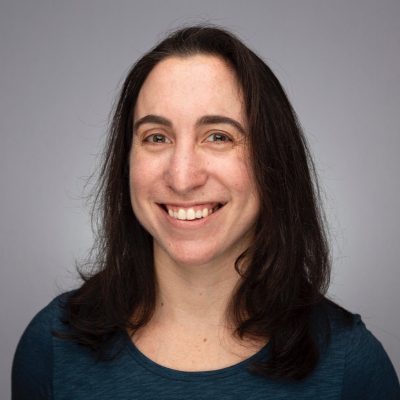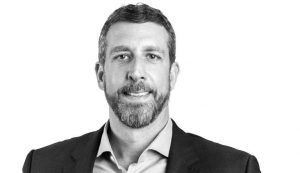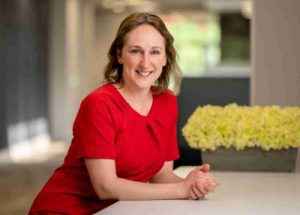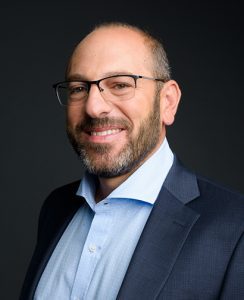
5 Questions With Stefanie Trop, Ph.D., Manager of Business and Innovation Development at the Maryland Department of Commerce
“5 Questions With…” is a weekly BioBuzz series where we reach out to interesting people to share a little about themselves, their work, and maybe something completely unrelated. This week we welcome Stefanie Trop, Ph.D., the new Manager of Business and Innovation Development at the Maryland Department of Commerce.
Stefanie brings hands-on research experience in cellular immunology, from basic research to clinical trials, along with data analysis consulting and customer support. Most recently, as a data scientist in flow cytometry with Beckman Coulter Life Sciences, she enjoyed really moving life science research to fruition through data analysis by helping companies make data-driven decisions in their studies. Stefanie holds a B.S./B.A. from the University of Rochester and a Ph.D. from the Johns Hopkins School of Public Health. She is currently also pursuing a Master of Biotechnology Enterprise and Entrepreneurship at Johns Hopkins University. After living, learning, and working in Maryland, she is excited to support the strong local network of life science institutions that create global impacts.
1) Please introduce yourself to our audience by looking back at your education, training, and career.
I am a perpetual student of many things. I went to the University of Rochester for college, earning a dual degree—a B.S. in Microbiology and Immunology and a B.A. in Music. Rochester also offered a really fun program to take a fifth-year tuition-free just to learn something different beyond the degree, which was right up my alley. I used that opportunity to take some of the classes that I was kind of scared of – English, History, Religion – in a program I designed called “Jewish Cultural Identity.” They actually ended up being some of my favorite classes! I really valued that I got to learn a lot about the world beyond my science and music courses.
After five years of college, I knew I loved infectious diseases but didn’t really know what I wanted to do yet for a career, so I stayed in school. True to my multi-disciplinary interests, I did bench science in a public health institution at the Johns Hopkins School of Public Health. I earned my Ph.D. in Molecular Microbiology and Immunology studying the cellular immune response to the malaria parasite, where I spent most of my time either dissecting mosquitoes to isolate Plasmodium parasites or in a darkroom looking at fluorescent images of cells we infected with those parasites. I had a lot of dreams in only red, green, and blue during those years!
The rationale for our research was that understanding the immune response can help to develop vaccines. That interest took me to do a postdoc at the Naval Medical Research Center in Silver Spring, MD, to work on clinical vaccine trials against ETEC, a cause of infectious diarrhea in the military and in developing regions. It was a transition away from academic research, being more translational and product-development focused, and I got to participate in the entire pipeline of vaccine basic research, development, evaluation, and manufacturing. I learned about a lot of the procedures that biopharma and biotech companies have to go through during product development.
Because we were collecting and analyzing many types of data from clinical trials, I had the opportunity to see and analyze a ton of data. Out of necessity, I learned new data analysis skills like machine learning and programming in R, which I ended up really loving. More excited by working with data than generating it at the bench, I took a Data Scientist position with a software startup, Cytobank, then acquired by Beckman Coulter Life Sciences, where I helped scientists to analyze their single cell data from different methodologies like flow cytometry. I felt that I could contribute to science on a much larger scale than I could doing my own research. Furthermore, while helping scientists make their discoveries, I also benefited from learning about so many different diseases and conditions that our customers were working on, like cancer and autoimmunity.
I thought I could scale my support for biomedical advances even further by learning more about the business and management side, and thus began a Master’s program at Johns Hopkins in Biotechnology Entrepreneurship and Enterprise. The combination of my learnings there and my desire to advance science brought me to my new role with the MD Department of Commerce, where I am working with our local companies, workforce, investors, and government to support life science business development and innovation together.
2) You just joined on the MD Department of Commerce in January – what are you most excited about learning and doing in this new role?
Life science brought me to Maryland for school and has kept me here for work opportunities. The rest of the world is getting to see and benefit from the life science developments here, like the manufacturing of COVID vaccines and the development of cell therapies for cancer. Professionally, I’m excited to be a part of this fast-paced regional community and to impact science and biomedical developments in my backyard that will make their way around the world. On a personal level, I’m excited to keep stretching my boundaries and learning more.
3) What kind of hobbies or activities do you do outside of work?
I teach fitness classes, which I love because I get to support people in reaching their goals all while having fun. I especially care about positively influencing women’s mindsets about body image through fitness, sharing that being physically strong makes us not only physically, but mentally and emotionally healthier and improves all aspects of life. I also love to cook – I guess I do a lot of “counter science” in lieu of “bench science.” I play the flute with the NIH Philharmonia, made of mostly scientist-musicians (check out our concerts in Rockville, MD!), and love getting outside to camp, hike, and paddle with my husband and our dog.
4) Like many, you pursued a career path beyond the bench after your Ph.D. What is one piece of advice you’d give to a Ph.D. student or postdoc who is considering a non-bench career?
You are capable of a lot more than you realize. Most Ph.D. programs aren’t designed to train students for a career outside of academia, though this is improving in time. Thus, you might not have been formally taught to do all the required duties on a job requisition. However, if you think about all the steps you had to take in your Ph.D. – the project planning (project management), interpreting results (critical thinking), sharing bench space (collaborating/work well with a team), troubleshooting when your experiments go awry (risk management and mitigation), presenting (communications and marketing, under pressure no less), and so much more – you have these skills and you can easily come up with demonstrative evidence. If you figure out what you want to do (I think that’s the hard part), you have the skills to do it, and can easily learn them if you don’t. After getting through a Ph.D., you can do anything.
5) And, because you’re a immunologist/microbiologist….if you could be one type of microbe, what kind of microbe would you be and why?
I’d be happy to represent the good guys as a nonpathogenic E. coli. E. coli always gets such a bad rap, being in the news for its pathogenic toxin-carrying cousins that cause foodborne illnesses. However, many E. coli are actually very beneficial for their human hosts. Further, E. coli are a crucial molecular biology tool in the lab. Many discoveries are owed to the humble DH5alpha E. coli! If I could pick a second, I’d like to be a virus that uses alternate reading frames for translation, like influenza. I was absolutely blown away when I learned about that incredibly smart, efficient system for packaging more proteins into a tiny genome. Something to strive towards!
- About the Author
- Latest Posts
BioBuzz is a community led, experience focused, biotech and life sciences media and events company. BioBuzz highlights regional breaking news, industry professionals, jobs, events, and resources for business and career growth. Their weekly newsletter is subscribed to by thousands in the BioHealth Capital Region and Greater Philadelphia as the go-to for industry updates.






